Fossil Springs Classic Robe
A made-in-America wool blanket in a pattern inspired by the powerful waters of Fossil Springs in Arizona's Coconino National Forest. Every minute, 20,000 gallons of calcium-laden water pour from the base of a 1,600-ft deep canyon, laying down deposits of travertine limestone and creating fossils that inspire the area's name. In the center of this pattern, the springs surge to the surface, flowing out to fuel the wild waters of Fossil Creek.



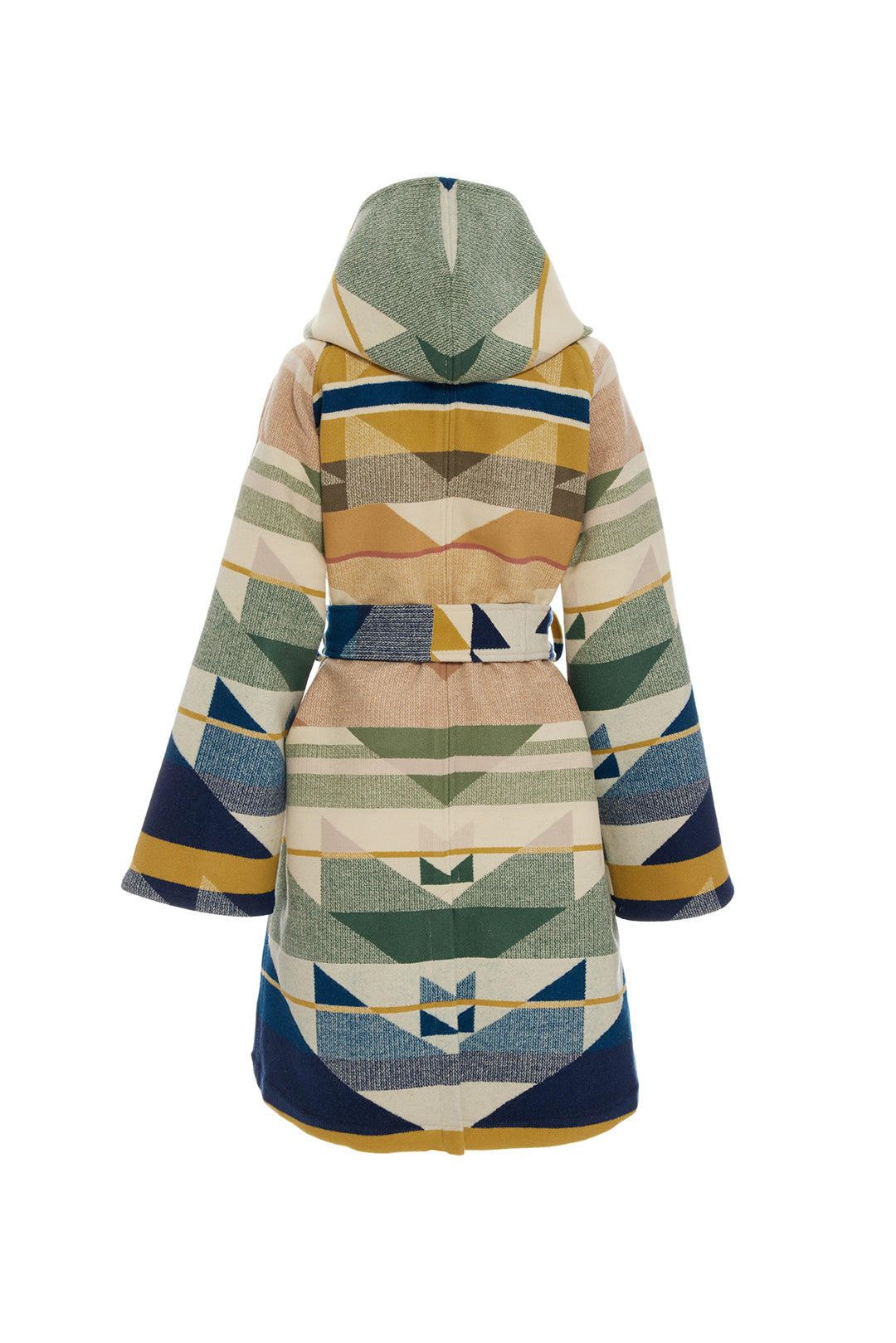
Fossil Springs Classic Robe
A made-in-America wool blanket in a pattern inspired by the powerful waters of Fossil Springs in Arizona's Coconino National Forest. Every minute, 20,000 gallons of calcium-laden water pour from the base of a 1,600-ft deep canyon, laying down deposits of travertine limestone and creating fossils that inspire the area's name. In the center of this pattern, the springs surge to the surface, flowing out to fuel the wild waters of Fossil Creek.
Mid-length and hooded unlined robe with raglan sleeves, waist tie with belt loops and lined patch pockets.
Napped Pendleton blanket: 82% wool, 18% cotton and wool cashmere facings.
A made-in-America wool blanket in a pattern inspired by the powerful waters of Fossil Springs in Arizona's Coconino National Forest. Every minute, 20,000 gallons of calcium-laden water pour from the base of a 1,600-ft deep canyon, laying down deposits of travertine limestone and creating fossils that inspire the area's name. In the center of this pattern, the springs surge to the surface, flowing out to fuel the wild waters of Fossil Creek.
You may also like
-
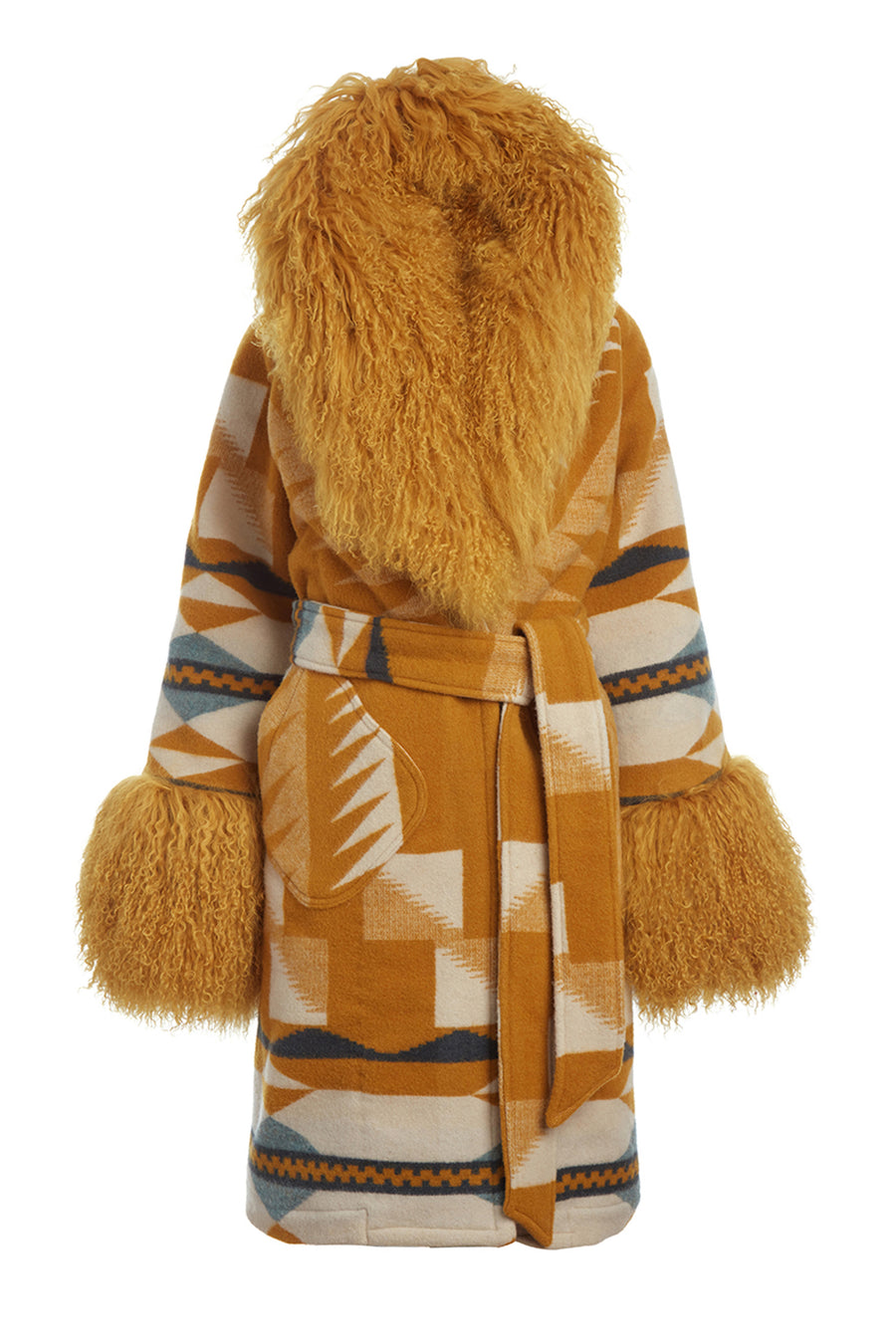

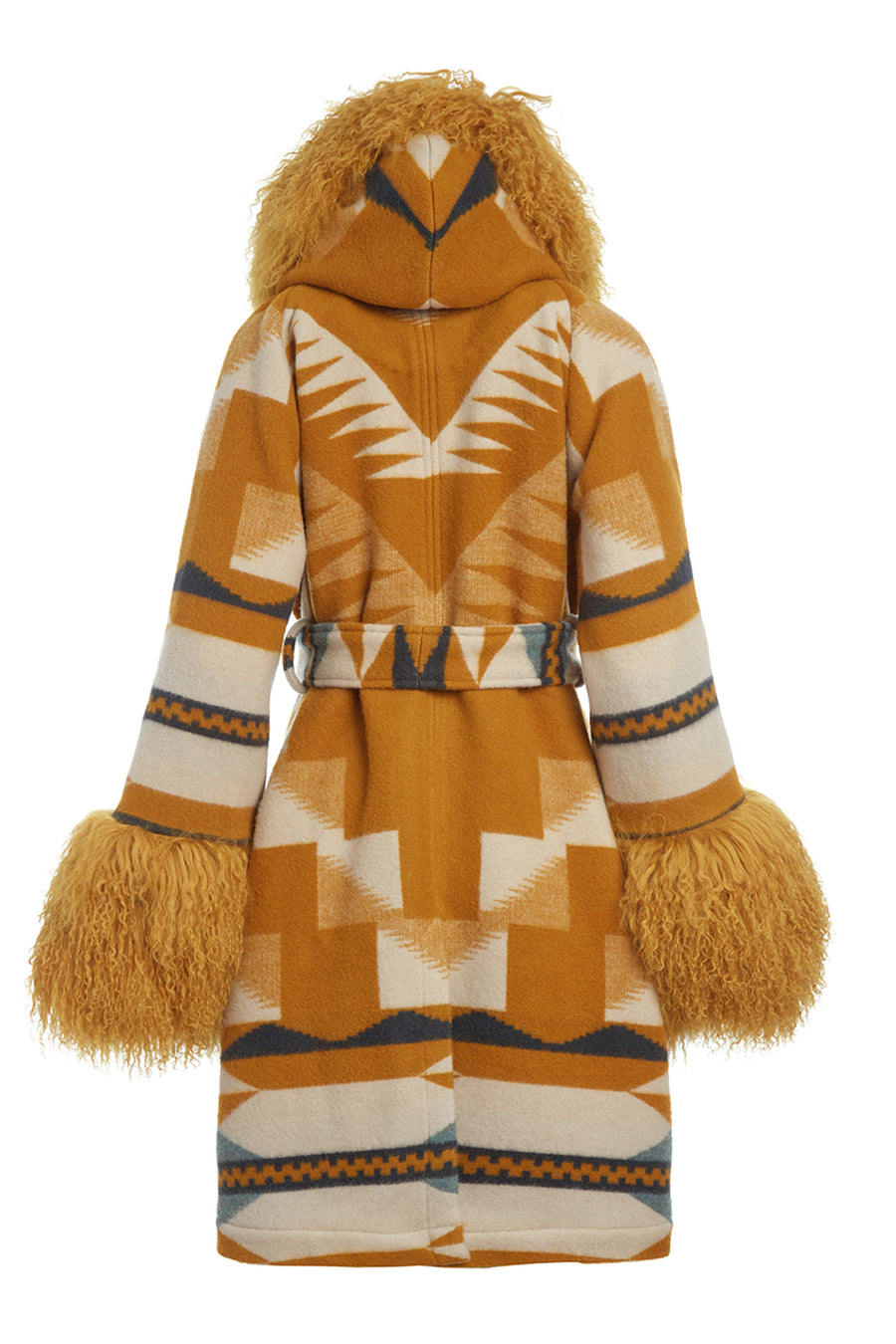
- Abiquiu Sky Smoking Robe
- Yellow
- $2,800
-
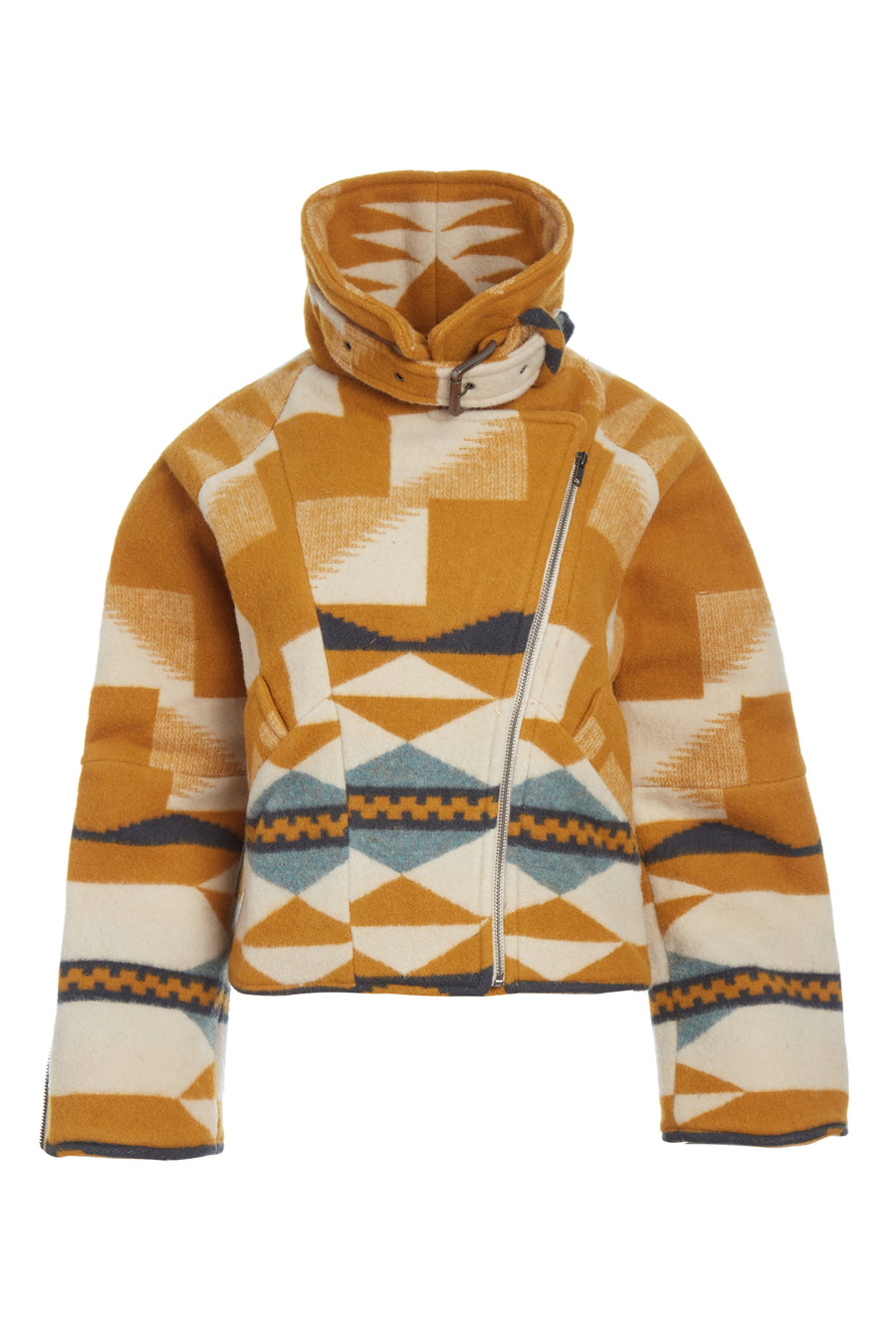

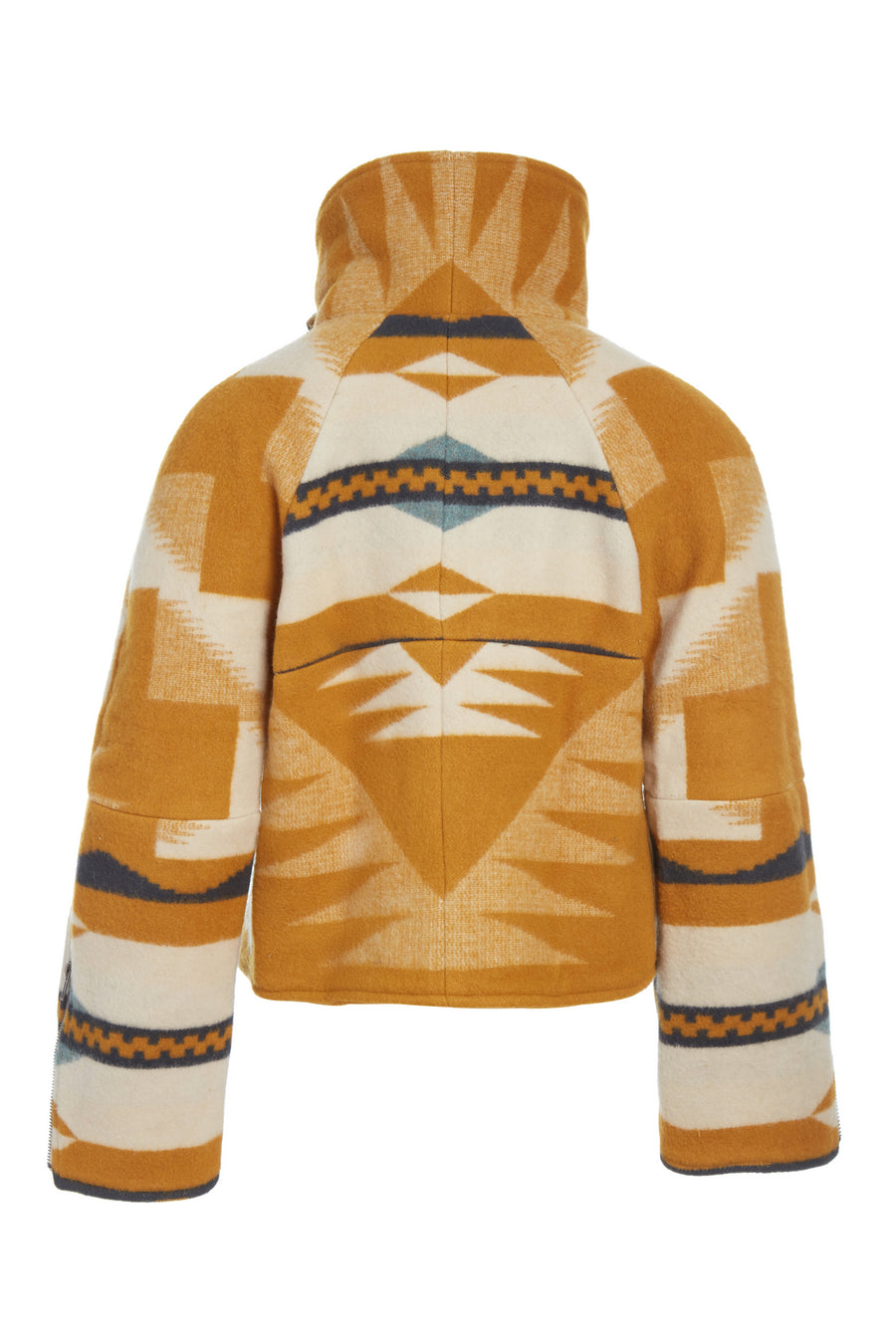
- Abiquiu Sky Betty Aviator
- Yellow
- $1,800
-
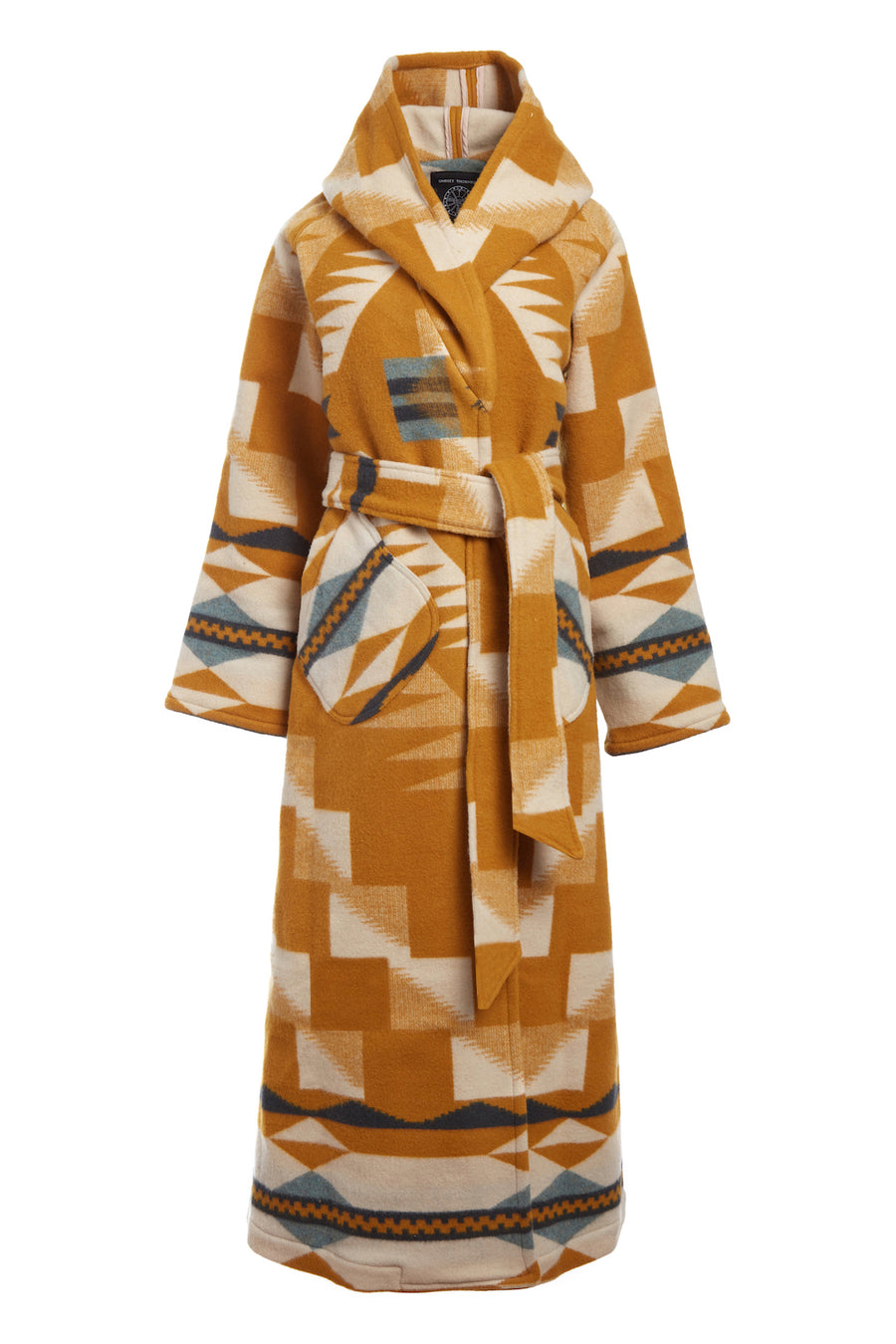

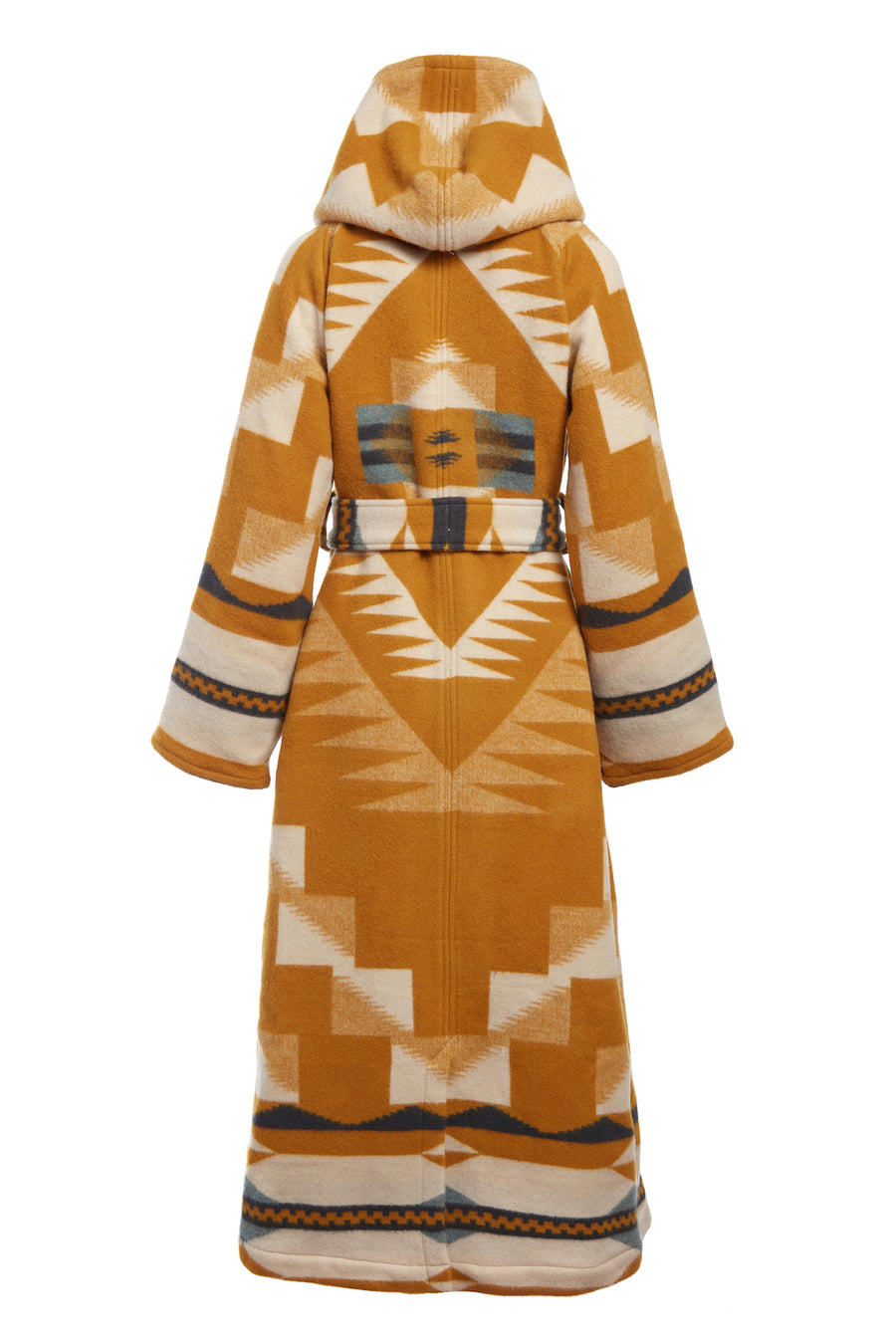
- Abiquiu Sky Classic Duster
- Yellow
- $1,900








